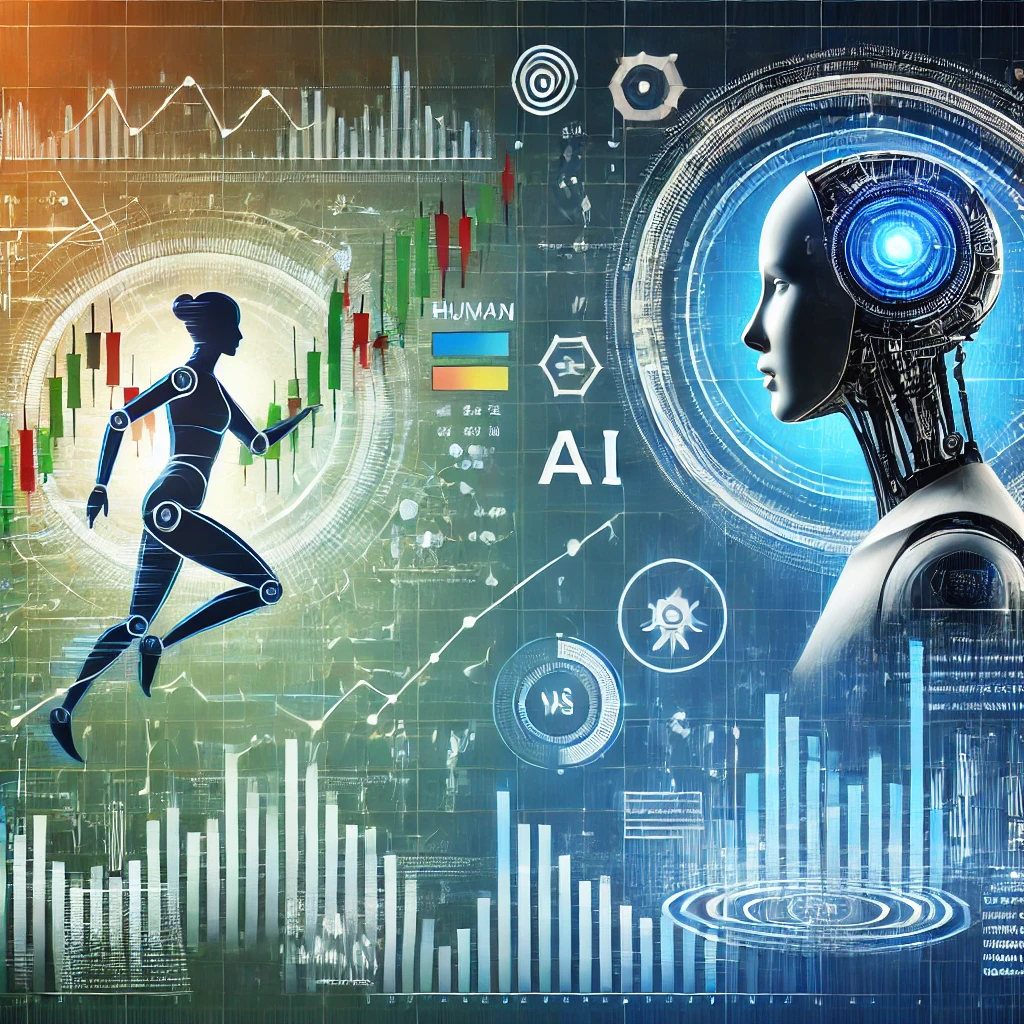As artificial intelligence (AI) continues to make its mark across various industries, the stock market is one area where it’s gaining particular traction. Investors, traders, and analysts increasingly turn to AI to make decisions, analyze trends, and maximize profits.
But how does AI stack up against human intelligence when navigating the complex world of stocks?
Let’s explore the advantages and limitations of this financial battle and who is winning it.
The Human Edge – Intuition, Experience, and Judgment
Humans have been at the heart of the stock market for centuries, and three key factors often shape their approach to investing:
-
Intuition: Human investors can rely on gut feelings and experience to make decisions in uncertain markets. This emotional aspect, while sometimes criticized, can help seasoned traders spot opportunities that data-driven models might miss.
-
Experience and Adaptability: A lifetime of watching the market gives veteran investors an edge. They’ve seen booms, busts, bubbles, and crashes, allowing them to quickly adapt strategies based on past experiences.
-
Judgment in Crises: When unexpected events like the 2008 financial crisis or the COVID-19 pandemic hit, human investors can use judgment and discretion to adjust to chaotic environments, something AI struggles with when the data becomes unpredictable.
However, human decision-making is not without flaws. Cognitive biases, emotions like fear and greed, and limited access to massive amounts of real-time data can hinder performance.
The AI Advantage – Speed, Precision, and Data-Driven Decisions
On the other hand, AI has become a formidable player in the stock market thanks to its ability to process massive amounts of data with speed and precision. Here’s what makes AI a valuable tool in stock market investing:
-
Data Processing Power: AI can analyze vast datasets, news articles, financial reports, and social media trends in a fraction of the time it would take a human. This gives AI a significant edge in spotting patterns, correlations, and opportunities faster than human traders.
-
Algorithmic Trading: Algorithms, a key component of AI, can be programmed to execute trades based on predefined criteria, reducing the risk of emotional decision-making. Algorithmic trading also allows for high-frequency trades, where large volumes of stocks can be bought and sold in milliseconds, capturing tiny market inefficiencies.
-
Elimination of Bias: AI systems rely purely on data. They are not swayed by fear, greed, or other emotional factors that can cause human traders to make irrational decisions. By sticking to statistical models, AI can reduce errors caused by human psychology.
-
Continuous Learning: AI systems, particularly those using machine learning, are capable of learning from market behavior. Over time, they can improve their predictions, adapt to new trends, and refine their strategies, making them increasingly effective.
Limitations of AI in Stock Trading
Despite its advantages, AI isn’t without limitations:
-
Black Swan Events: AI systems rely on historical data to predict future trends. When entirely new or unpredictable events (like the COVID-19 pandemic) occur, AI models often fail because they don’t have any past data to guide them.
-
Lack of Human Insight: AI lacks the intuition, experience, and creative thinking that humans bring to the table. While AI can analyze data, it cannot interpret non-quantifiable factors like market sentiment or geopolitical nuances as effectively as a human.
-
Overfitting and Model Bias: If AI models are trained too rigidly on historical data, they can become too specialized, making them less flexible when market conditions shift.
Humans + AI: A Powerful Combination
Rather than asking whether humans or AI are better at stock trading, many experts argue that the real power lies in combining the two. Human intuition and judgment can work alongside AI’s data-crunching abilities to create a more balanced approach.
For example, a human trader can use AI to identify potential opportunities and then apply their own knowledge, intuition, and experience to decide whether or not to act on the information. This hybrid approach takes advantage of the strengths of both humans and machines.
The Future of AI in Stock Trading
AI’s role in the stock market is only going to grow as technology advances. AI models are becoming more sophisticated, capable of not only analyzing data but also learning from it in real-time. Meanwhile, human investors will need to adapt by learning how to use AI tools effectively.
Ultimately, it’s not a question of who will win—humans or AI—but how both can complement each other in the ever-evolving landscape of stock market investing.
The stock market has long been dominated by human intelligence, but AI is quickly making its presence felt. While humans bring intuition, experience, and adaptability, AI offers speed, precision, and the ability to process enormous amounts of data.
The future likely lies in a collaboration between the two, where human judgment and AI-driven data analysis work together to navigate the complexities of the stock market.
Who wins?
That depends on how well we learn to leverage AI to complement human expertise.





Leave a Reply